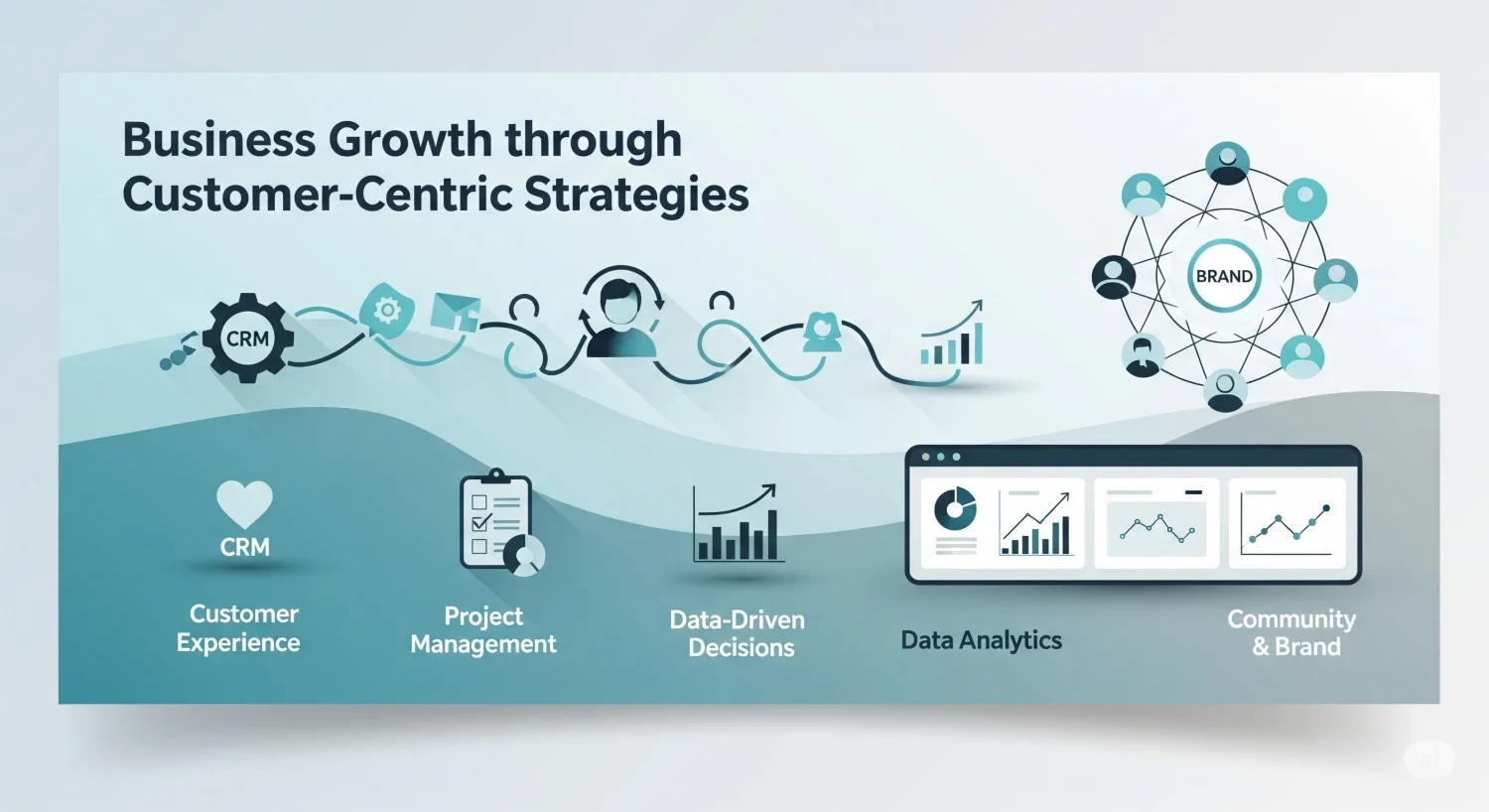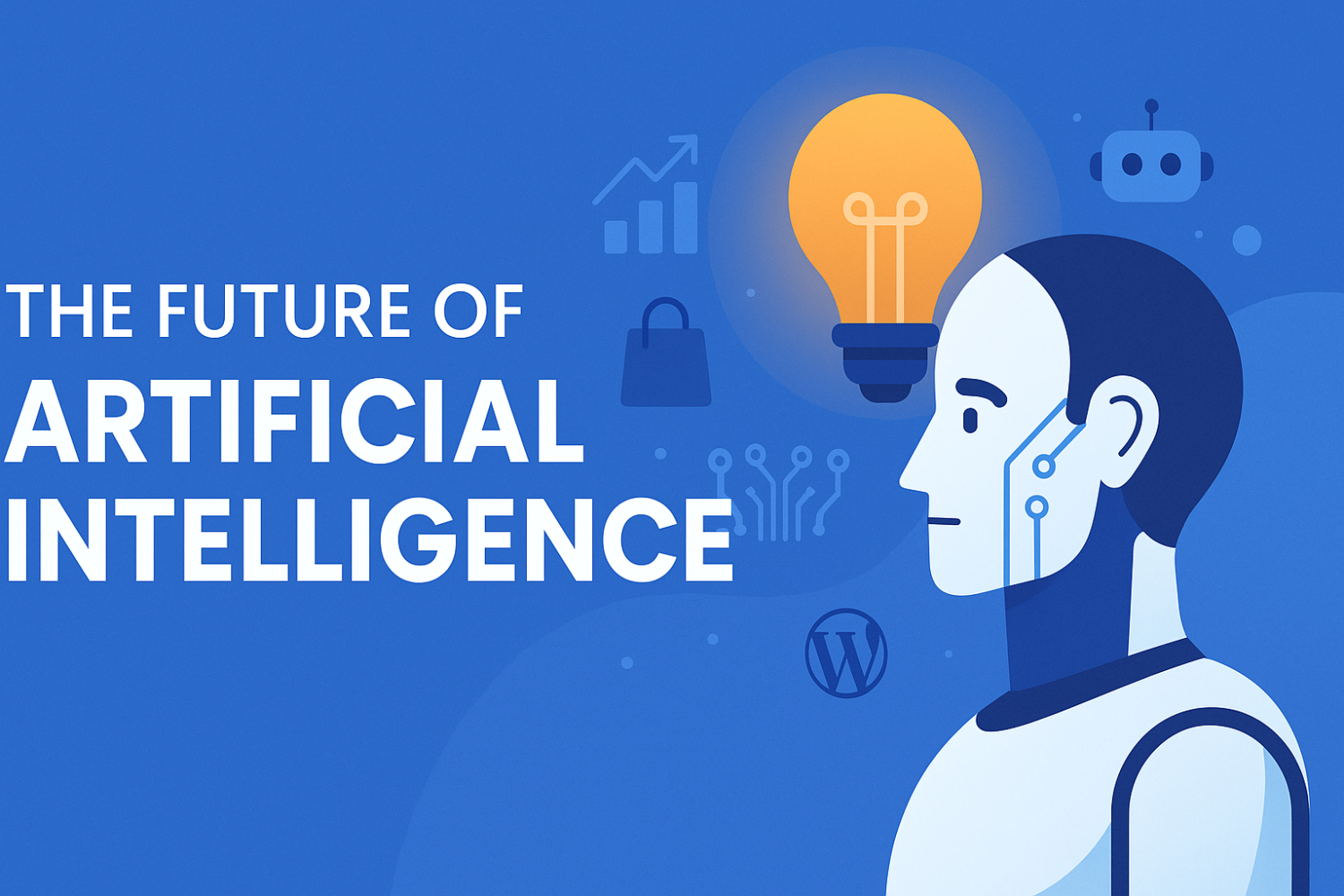10 Powerful Strategies to Grow Your Business Effectively

Understanding Customer Experience Optimization
In today’s competitive market, understanding customer experience (CX) is pivotal for any organization seeking effective business growth. Customer experience encompasses the entirety of a customer's interaction with a brand, from initial awareness through to post-purchase engagement. By optimizing these interactions, businesses not only enhance customer satisfaction but also foster loyalty, leading to higher retention rates and revenue growth.
One fundamental strategy for improving customer experience is gathering customer feedback. This can be achieved through surveys, focus groups, and direct interviews, allowing businesses to gain insights into what their customers value most. For instance, an e-commerce website might implement post-purchase surveys to identify pain points in the purchasing process. Such feedback is invaluable as it allows companies to make informed decisions about necessary adjustments, ultimately streamlining the customer journey.
Another essential aspect of CX optimization is personalizing customer interactions. Tailoring communications and offerings to meet the specific needs and preferences of individual customers demonstrates attentiveness and commitment. For example, personalized email campaigns that recommend products based on past purchases can significantly enhance the customer’s experience and establish a deeper connection. The use of CRM tools can support this endeavor by tracking customer behavior and preferences to ensure that interactions are relevant and timely.
Additionally, creating a seamless purchasing journey plays a significant role in optimizing customer experience. This includes ensuring that the website is user-friendly, the checkout process is straightforward, and there are multiple payment options available. A well-executed CX strategy may include the implementation of chatbots to assist customers in real-time or offering multiple channels for customer support. Companies such as Zappos and Amazon exemplify successful CX strategies by prioritizing customer satisfaction throughout the buying process, thus achieving business success.
By focusing on these key areas, businesses can effectively implement customer experience optimization as a core strategy to accelerate growth and ensure sustained success in their respective industries.
Leveraging Digital Tools for Efficiency
In the contemporary business landscape, leveraging digital tools has become essential, particularly for small and medium enterprises (SMEs) seeking business growth. These tools not only facilitate efficiency but also enhance productivity across various business operations. One primary area where digital tools can aid in business development is through Customer Relationship Management (CRM) systems. CRM platforms assist businesses in managing interactions with current and potential customers, allowing for improved customer service and streamlined sales processes. By utilizing a reliable CRM, businesses can collect valuable insights into customer behaviors, preferences, and trends, thereby informing more targeted marketing strategies.
Another essential tool for SMEs is project management software. These platforms help teams collaborate effectively, track project progress, and allocate resources efficiently. When selecting project management tools, it is important to consider features such as usability, scalability, and integration capabilities with existing systems. Employing these digital tools allows businesses to streamline workflows and ensures that projects are completed on time, contributing to overall business success.
Social media marketing platforms also play a crucial role in promoting business growth. Utilizing these tools enables SMEs to reach a broader audience, engage with customers, and build brand loyalty quickly. Social media analytics can provide insights into the effectiveness of marketing campaigns, allowing businesses to adjust their strategies for better results. However, it is vital to choose the right platform that aligns with the target audience and business goals.
In conclusion, adopting digital tools is a significant step toward enhancing operational efficiency and fostering business success. By carefully selecting and integrating the right tools, SMEs can not only improve their day-to-day functions but also see a substantial return on investment in terms of growth and productivity. These business growth tips aim to guide SMEs in their pursuit of effective digital solutions to grow their business fast.
Utilizing Data Analytics for Informed Decisions
In today's competitive landscape, utilizing data analytics serves as a pivotal strategy for achieving business growth. Businesses can collect vast amounts of data through various channels, including sales transactions, website interactions, and social media engagements. Analyzing this data enables organizations to identify emerging trends, understand customer behaviors, and develop small business strategies tailored to their target audiences.
To effectively harness the power of data analytics, businesses can start by implementing user-friendly analytics tools such as Google Analytics, HubSpot, or Mixpanel. These platforms provide valuable insights into user demographics, behavior patterns, and conversion metrics, making them suitable even for beginners. By integrating these tools into their operations, small business owners can gain a clearer picture of what drives their sales and customer retention.
Interpreting the data gathered is crucial for making informed decisions. Businesses should focus on key performance indicators (KPIs) relevant to their objectives. For example, tracking the conversion rate of specific marketing campaigns can help determine which strategies are most effective in attracting potential customers. Furthermore, analyzing customer feedback can reveal areas for improvement in product development and service delivery, leading to overall business success.
Incorporating these data-driven insights into marketing strategies can yield significant benefits. With a better understanding of customer preferences, businesses can tailor marketing messages to resonate with their audience, ultimately leading to increased engagement and conversion rates. Additionally, recognizing seasonal trends in customer behavior can help businesses plan promotional activities in a more targeted manner. Implementing effective data analysis not only aids in enhancing customer engagement but also fosters innovation and growth.
As organizations begin to embrace data analytics, they will uncover business development ideas that facilitate rapid growth. By remaining flexible and responsive to data insights, businesses can ensure they adapt quickly to market demands, positioning themselves for sustained success.
Building a Strong Community and Brand Presence
Creating a strong community around your brand is fundamental for achieving business growth. A robust community not only enhances customer loyalty but also solidifies your brand's recognition in a competitive marketplace. By engaging actively with your audience, you can transform your brand into a trusted entity that resonates with consumers. Various small business strategies, such as leveraging social media platforms, are critical for fostering such connections.
Social media serves as a powerful tool for engaging customers and building a community. It allows you to connect personally with your audience, receive immediate feedback, and cultivate relationships that go beyond mere transactions. Regular updates, behind-the-scenes content, and interactive posts can significantly enhance customer involvement. When consumers feel valued and heard, their loyalty towards your brand strengthens, which is a vital aspect of how to grow your business.
Content marketing also plays a pivotal role in building a brand community. By providing valuable content that addresses your audience's needs and interests, you demonstrate an understanding that goes beyond selling products. This strategy not only attracts prospective customers but also nurtures existing relationships. Incorporating business development ideas, such as webinars, podcasts, and informative blogs, can further engage your community and position your brand as a thought leader in your industry.
Building a strong brand culture is essential for creating a community that resonates. This involves aligning your business values with your community’s beliefs. Sharing your story and purpose can attract customers who are passionate about supporting brands that mirror their own values. Additionally, partnerships with other organizations can expand your reach and enhance your brand image while building a larger community.
To measure community engagement and brand sentiment, utilize analytics and feedback tools. Monitoring social media interactions, website traffic, and customer reviews provides invaluable insights that help you adjust your strategies for better results. By focusing on these elements, you can implement effective business growth tips that lead to sustained success.










